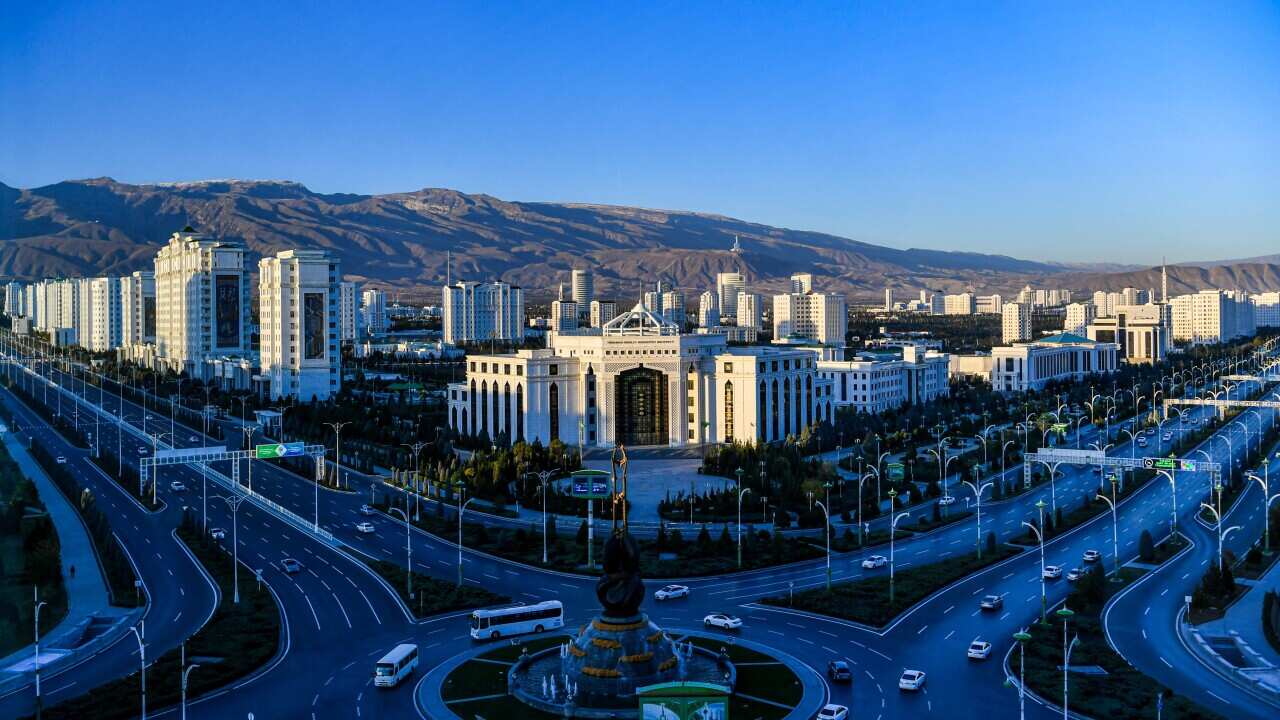Loujain al-Hathloul’s Twitter has been inactive since 12 March 2018.
The Saudi women’s rights activist was once a prolific tweeter with 307,000 followers and is reportedly a friend of the Duchess of Sussex.
Her feed is a record of causes she was passionate about, most notably, her efforts to abolish the kingdom’s ban on women driving. The 29-year-old made a name for herself in 2014 when she filmed herself attempting to drive into Saudi Arabia from the United Arab Emirates. She was arrested and imprisoned for 70 days.
The 29-year-old made a name for herself in 2014 when she filmed herself attempting to drive into Saudi Arabia from the United Arab Emirates. She was arrested and imprisoned for 70 days.

Detained: Loujain al-Hathloul, 29. Source: Supplied
Three days after her last tweet, Ms al-Hathloul was arrested again in the UAE and flown back to Saudi Arabia. Then in May, she was re-arrested in a crackdown on women’s rights activists in Saudi Arabia which targeted between 10 and 12 women, according to Human Rights Watch.
Most had fought publicly for the right to drive and an end to the kingdom’s male guardianship system.
They are currently in Dhban Mabahith Prison, north of Jeddahah, where Ms al-Hathloul’s family say she is being tortured.
“My own baby sister said she is being whipped, beaten, electrocuted and harassed on a frequent basis,” her brother Walid wrote in an last week.
“Whenever Loujain spoke about the torture sessions to my parents, her hands shook uncontrollably. I fear the pain will stay with her forever," he said.
My own baby sister said she is being whipped, beaten, electrocuted and harassed. - Walid al-Hathloul
Ms al-Hathloul's sister Alia previously told the : “She said she had been held in solitary confinement, beaten, waterboarded, given electric shocks, sexually harassed and threatened with rape and murder … My parents then saw that her thighs were blackened by bruises.”
And she’s not alone. Amnesty International said in November it had seen three testimonies from detained activists who were given electric shocks and flogged, leaving some unable to walk.
Amnesty International said in November it had seen three testimonies from detained activists who were given electric shocks and flogged, leaving some unable to walk.

Detained: Aziza Al Yousef, Eman Al Nafjan and Samar Badawi. Source: Supplied
Among those imprisoned are 60-year-old academic and mother of five Aziza al-Yousef - who led an awareness campaign after a Saudi cleric was accused of raping a five-year-old girl - blogger Eman al-Nafjan, and journalist Nouf Abdelaziz .
Mayaa al-Zahrani, Samar Badawi, Nassima al-Saada, and Hatoon al-Fassi are also still imprisoned without charge.
Human Rights Watch Middle East researcher Adam Coogle, who is based in Jordan, told SBS News the alleged treatment of the women was “utterly shocking” and unprecedented in the kingdom’s history.
“Of course we have heard numerous instances of beating and torture of men over the years, but treating women in this manner is something that we have never really heard before … I can still hardly believe it myself.”
Treating women in this manner is something that we have never really heard before. - Adam Coogle, Human Rights Watch
He claims the powerful Saudi Crown Prince Mohammed bin Salman and his advisers wanted to show “that they would go to any length to eliminate criticism”.
“Arresting the women … sent a very clear message to the rest of Saudi society that no one is untouchable,” he said. The world has been closely following Mr bin Salman and his regime after some recent high-profile incidents.
The world has been closely following Mr bin Salman and his regime after some recent high-profile incidents.

Detained: Nassima Al Saada and Hatoon Al Fassi. Source: Supplied
The crown prince has been accused of being behind the killing of at the Saudi Arabian consulate in Istanbul in October – an allegation he denies, calling it a called a "heinous crime that cannot be justified".
In January, Saudi teenager Rahaf Al Qunun also made headlines as she rallied opposition to the kingdom’s male guardian system and attempted to seek asylum in Australia.
A group of UK MPs have this week called for the immediate release of the detained women activists and warned responsibility for the alleged torture could reach all the way to Mr bin Salman if he ordered it or allowed it to continue.
It follows reports one of his aides oversaw the alleged torture of Ms al-Hathloul.
Saudi officials have denied the torture allegations, calling them "baseless".
The government “categorically and strongly denies the allegations made by them. The wild claims made, quoting anonymous ‘testimonies’ or ‘informed sources’, are simply wrong", the Saudi Ministry of Media said in a statement in November.
It claimed the women were arrested for "suspicious contacts with foreign entities" and offering "financial support of hostile elements overseas”.
Mr Coogle said it was not uncommon for Saudi Arabia to use terrorism law provisions against human rights activists. Under such laws, authorities are able to hold people for up to a year without charge, and indefinitely with a court order. Sydney-based Saudi protest artist Ms Saffaa is friends with some of the detained activists and creates protest art that challenges male guardianship laws. She has featured some of the detained activists in her work.
Sydney-based Saudi protest artist Ms Saffaa is friends with some of the detained activists and creates protest art that challenges male guardianship laws. She has featured some of the detained activists in her work.

Sydney-based Saudi artist Ms Saffaa has featured detained activist Loujain al-Hathloul in her work. Source: Ms Saffaa/Allie Ballesteros/Instagram
Even after moving to Australia she says she is "constantly looking over her shoulder" and often notices Saudi officials at her art shows.
She told SBS News about one occasion when a family approached her at an exhibition and asked to take pictures of her art - it was later revealed they worked for the "Saudi Arabian Cultural Office".
"They keep asking me if I want to participate in their cultural events - it's their way of neutralising me," she said.
"I refuse to alter my behaviour because of fear ... If something happens to me, then it would be for a good cause." Ms Saffaa came to Australia on an art scholarship but said she "can never go back" to the kingdom.
Ms Saffaa came to Australia on an art scholarship but said she "can never go back" to the kingdom.

Ms Saffaa. Source: Ms Saffaa/Instagram
According to World Bank data, 1169 Saudi citizens fled as refugees in 2017 - the highest number ever recorded. But it was after 2015, the year Mr bin Salman became leader, that the largest spike was seen. Diana Sayed, women’s rights campaigner at Amnesty International, told SBS News she believes Saudi Arabia and Mr bin Salman “wanted to take full credit for the lifting of the ban on women driving, as opposed to the decades-long and ongoing struggle of these women human rights defenders who have been campaigning for the right to drive.”
Diana Sayed, women’s rights campaigner at Amnesty International, told SBS News she believes Saudi Arabia and Mr bin Salman “wanted to take full credit for the lifting of the ban on women driving, as opposed to the decades-long and ongoing struggle of these women human rights defenders who have been campaigning for the right to drive.”

Saudi Arabia's refugee population has shot up since Mr bin Salman came to power. (Graph shows per thousand) Source: World Bank
She added: “They were heralding this as a shift and a tipping point for the country … but the facade quickly dissipated … there is absolutely zero space for criticism of the current prince.”
There is absolutely zero space for criticism of the current prince. - Diana Sayed, Amnesty International
Both Ms Sayed and Mr Coogle believe the detention of the female activists is having a silencing effect on the Saudi population.
“People in Saudi are scared to talk, no one will ever utter a world critical of MBS [Mohammad bin Salman] because they know they can be arrested and tortured over it,” Mr Coogle said.
But, he added, those who had escaped, like Mr Khashoggi before he was killed, are posing the greatest threat to the regime.
“[They] are calling attention to the reality in Saudi Arabia, in a way that is much louder and visible than what he had previously.”
Ms Sayed said it was now more than ever a “moral imperative” for countries like Australia to “take a moral stance" and use their international pressure on the kingdom to challenge its “problem with human rights”.
As for the detained women, Mr Coogle said the decision to release them comes down to one man.
“Does MBS decide he wants to go through with this and charge them, or does he decide he doesn’t want to take the heat and criticism for it,” he said. “We don’t know which way it is going to go.”









